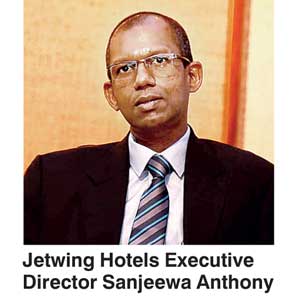Monday Feb 23, 2026
Monday Feb 23, 2026
Tuesday, 7 February 2017 00:55 - - {{hitsCtrl.values.hits}}
By Charumini de Silva
Sri Lanka’s investment climate presents a far less attractive proposition with inconsistent policies and unreasonable tax structures, where the private sector insisted the Government tackle these issues before too long. 
With Sri Lanka competing for significant foreign direct investments (FDIs) in the South and Southeast Asian region, a stable policy and effective administrative structure could encourage the investment needed to grow, Jetwing Hotels Executive Director Sanjeewa Anthony stated at a tax seminar held in Colombo recently.
It was pointed out that the tourism sector was one of Sri Lanka’s success stories of its post-war economy where it had become the third-largest foreign exchange earner, accumulating $ 3 billion in earnings last year, with 2.05 million tourist arrivals, equating to a compound annual growth rate (CAGR) of around 22% over the past five years.
Noting that these results have been achieved through targeted investments, he said that the industry held further potential but it was critical to have policy consistency to establish a firm position in the market.
“We have requested the Government to give us another two to three years until the industry absolutely positions itself because changing the tax structure and complicating the tax issues is a concern for the industry,” he added.
He also revealed that it took at least two to three years to get Government approval for hotel projects and stressed that if the country required FDIs it was necessary to speed up these procedures.
He emphasised that it was imperative to focus on how Sri Lanka as a travel destination could develop its competitive edge with the right mix of products which would offer value for money for travellers.
“We are disappointed with the taxes going up. At the moment we are struggling, but if we continue to move forward like this we might lose our competitive edge in the near future,” he added.
Acknowledging that tourism is a capital intensive industry, where it takes around 10 years to breakeven, Anthony said that most of the companies were reinvesting their returns to refurbish and expand and therefore increasing taxes at this point was unreasonable.